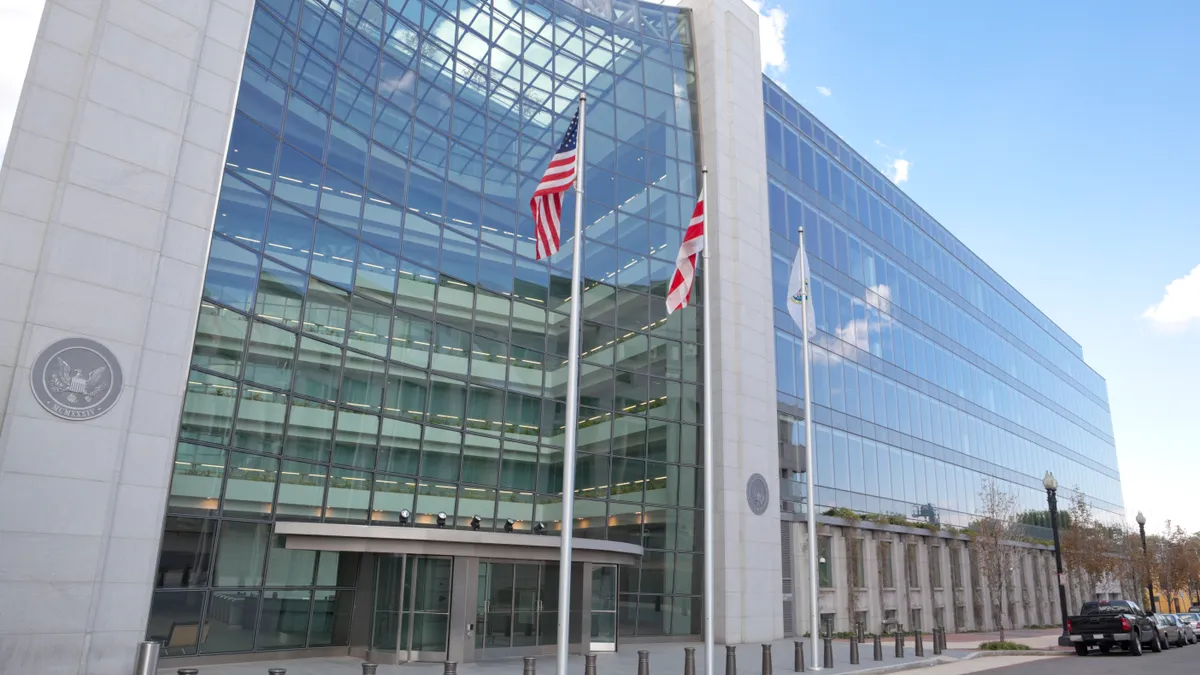Dive Brief:
- The Securities and Exchange Commission (SEC) fined Ernst & Young $100 million for cheating by its auditors on ethics exams and for withholding evidence of wrongdoing from the agency’s Enforcement Division. The penalty is the largest ever imposed on an audit firm, the SEC said Tuesday.
- EY acknowledged the SEC’s findings and, as part of a detailed remedial plan, will hire outside firms to conduct two compliance reviews, the SEC said. One review will focus on internal efforts to promote ethics while the other will investigate how EY executives and attorneys reacted to an SEC inquiry in 2019 about reports of cheating.
- “This action involves breaches of trust by gatekeepers within the gatekeeper entrusted to audit many of our nation’s public companies,” SEC Enforcement Division Director Gurbir Grewal said in a statement. “It’s simply outrageous that the very professionals responsible for catching cheating by clients cheated on ethics exams.”
Dive Insight:
The SEC finding is the second instance of wrongdoing identified by the agency in recent years among the Big Four accounting firms that audit the books of public companies.
The SEC on June, 17, 2019, announced that it fined KPMG $50 million for widespread cheating on internal training exams, including the sharing of answers and manipulating results. The agency also said former KPMG partners had obtained a stolen, confidential list of audits that would be the target of reviews by the Public Company Accounting Oversight Board (PCAOB).
Two days after the SEC announcement, EY’s managing partner in the U.S. messaged all staff saying that the sanctions against KPMG underscored “the need to always act with integrity and honesty” and that sharing “answers on internal or external tests or evaluations is highly unethical behavior, in violation of our Code of Conduct, and will not be tolerated at EY,” the SEC said.
On the same day, the SEC Enforcement Division sent EY a formal request for information about any ethics complaints related to testing in training programs or professional education.
In a reply on June 20, EY flagged to the SEC five matters related to cheating or other misconduct in training and assessments, including a 2017 tip that two employees had cheated on a CPA ethics exam. It gave no indication that cheating was an ongoing problem even though on June 19 an employee told a manager that someone in the audit group had emailed the answers to a CPA ethics exam, the SEC said.
From 2017 to 2021, 49 EY auditors “sent and/or received answer keys to CPA ethics exams,” the SEC said. “In addition, hundreds of other audit professionals cheated on CPE [continuing professional education] courses, including those addressing CPAs’ ethical obligations.”
As the SEC investigation unfolded, EY acknowledged that over several years many of its auditors also cheated on courses required to maintain CPA licenses, including ones designed to ensure that accountants can determine whether financial statements comply with Generally Accepted Accounting Principles, the agency said.
“At EY, nothing is more important than our integrity and our ethics,” the firm said in a statement.
EY “is complying with the requirements of the order,” the firm said, adding “our response to this unacceptable past behavior has been thorough, extensive and effective.”















